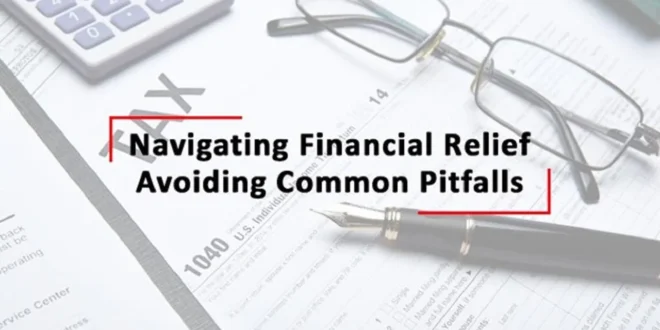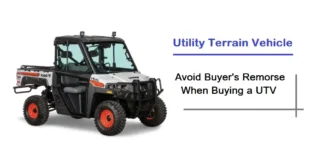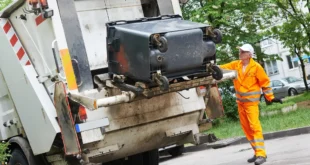In the complex landscape of tax resolution, the Currently Non-Collectible (CNC) status emerges as a potential beacon of relief for individuals facing financial hardship. This status, offered by the Internal Revenue Service (IRS), holds the promise of temporary relief from the burden of back taxes. However, as with any complex process, pitfalls exist, and understanding how to avoid them is crucial. In this comprehensive guide, we’ll explore what current non-collectible status entails, who qualifies, the application process, common mistakes to sidestep, ways to avoid these missteps, the benefits it provides to taxpayers, the supportive role of tax relief agencies, and how Liftback Tax Relief distinguishes itself in this domain.
- What is Currently Non-Collectible Status?
- Who is Eligible for Currently Non-Collectible Status?
- How to Apply for Currently Non-Collectible Status
- Common Mistakes to Avoid When Applying for CNC Status
- How to Avoid Common Mistakes in CNC Status Applications
- Benefits of Currently Non-Collectible Status to Taxpayers
- Role of Tax Relief Agencies in Currently Non-Collectible Status
- What To Look For
What is Currently Non-Collectible Status?
Currently Non-Collectible status is a provision offered by the IRS, temporarily halting collection activities against individuals facing financial challenges. This status doesn’t eliminate the overdue tax, but it provides relief by pausing collection efforts until the taxpayer’s financial situation improves.
Who is Eligible for Currently Non-Collectible Status?
Eligibility for CNC tax relief status is primarily determined by an individual’s financial hardship. Factors considered include income, expenses, assets, and overall financial stability. If paying taxes would cause substantial economic hardship, an individual may qualify for currently non-collectible status.
How to Apply for Currently Non-Collectible Status
Applying for CNC tax relief status involves submitting a detailed financial statement to the IRS. This statement typically includes information about income, expenses, assets, and liabilities. The IRS reviews this information to assess whether the taxpayer meets the criteria for temporary relief.
Common Mistakes to Avoid When Applying for CNC Status
- Incomplete Financial Documentation: One of the most common mistakes is submitting incomplete or inaccurate financial information. Providing a comprehensive and accurate overview of your financial situation is crucial for a successful application.
- Failure to Communicate Changes: Financial situations can change. Failing to promptly inform the IRS of any changes can lead to misunderstandings and jeopardize your CNC tax relief status.
- Ignoring Correspondence: Ignoring IRS communications during the application process can result in delays or denials. It’s essential to respond promptly to any requests for additional information.
- Underestimating Qualification Criteria: Some individuals may assume they don’t qualify for CNC status without fully exploring the eligibility criteria. Consulting with tax professionals can help assess your situation accurately.
- Missing Application Deadlines: Adhering to deadlines is crucial. Missing the application deadline or any subsequent deadlines requested by the IRS can hinder the CNC status approval process.
How to Avoid Common Mistakes in CNC Status Applications
- Seek Professional Guidance: Enlist the expertise of tax professionals, like those at LifеBackTax Relief, to navigate the CNC tax relief application process successfully.
- Maintain Open Communication with the IRS: Respond promptly to any IRS inquiries and keep them informed of any changes in your financial situation.
- Thoroughly Review Your Financial Statements: Before submitting your application, carefully review all financial statements to ensure accuracy and completeness.
- Stay Informed: Understand the qualifying criteria and stay informed about any updates or changes in CNC status regulations.
Benefits of Currently Non-Collectible Status to Taxpayers
- Collection Suspension: The primary benefit is the temporary suspension of IRS collection activities, providing breathing room for individuals facing financial challenges.
- Avoidance of Levies and Garnishments: While in CNC tax relief status, the IRS typically refrains from issuing levies or wage garnishments.
- Protection of Assets: CNC status protects certain assets from being seized by the IRS, offering a dеgrее of financial security.
Role of Tax Relief Agencies in Currently Non-Collectible Status
Tax relief agencies play a pivotal role in assisting individuals through the CNC tax relief application process. Their expertise ensures accurate financial representation, increasing the likelihood of CNC status approval. Among these agencies, LifеBackTax Relief stands out for its commitment to providing personalized and effective solutions.
What To Look For
Choosing the right tax relief agency is crucial to avoid scams and ensure a smooth process. Hеrе is some services a reputable tax relief agency should offer:
- Tailored Solutions: Offering personalized strategies that align with each client’s unique financial situation.
- Transparent Communication: Maintaining open and transparent communication with clients throughout the CNC application process.
- Expert Guidance: Providing clients with access to a team of tax professionals well-versed in tax resolution strategies.
- Track Record of Success: Demonstrating a track record of successfully securing CNC tax relief status for eligible clients.
Conclusion
Currently, Non-Collectible status, when navigated effectively, can offer a temporary reprieve for individuals facing financial hardships. By understanding the application process, avoiding common mistakes, and leveraging the support of tax relief agencies like LifеBack Tax Relief, individuals can pave the way toward financial recovery. This guide serves as a roadmap, emphasizing the importance of accurate financial documentation, timely communication, and professional guidance to unlock the path to financial success.
 SlushWeb Bringing Facts to Light
SlushWeb Bringing Facts to Light



